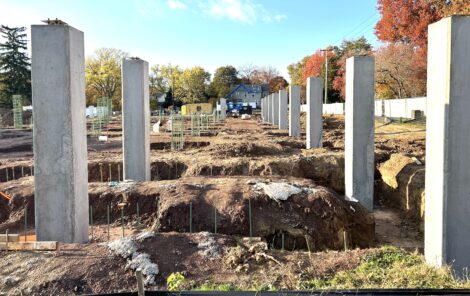Council discusses possible transfer to development department for early start on CDBG project
Marietta City Council discussed Monday possibly transferring funds as an advance for Community Development Block Grant program funds for the city development department so they can stay in compliance with CDBG rules.
During a Finance Committee meeting Monday evening Ward 1 Councilman and Finance Director Michael Scales introduced a possible transfer of $95,000 from the general fund to general fund miscellaneous for an advance of CDBG funds.
“The $95,000 is part of a project that we need to complete to stay in the good graces of the feds,” Scales said.
City Development Director Geoff Schenkel explained to council members the need for the advance. He said there is a lag between when a project funded by CDBG starts and when the money actually arrives locally and they want to start a project early. After the meeting Schenkel explained that the project in question is a sidewalk project for Harmar.
The reason that the development department wants to start the project early is because the city has not been in noncompliance with CDBG program requirements for timeliness, according to Schenkel.
He said the way timeliness works is the city cannot have more than 1.5 times a yearly CDBG allocation sitting in its accounts at one time.
The city has been untimely twice already, once before she started and once in November 2024, City Development Clerk Amanda Clark said.
“So the way timeliness works is you only get three times untimely before you lose your funding,’ she said.
The city is considered an entitlement city for CDBG funds and if they have three times untimely they would also lose their entitlement, according to Schenkel.
He said the development department has spent the 2022 and 2023 CDBG funds this year and wants to work ahead by spending the 2024 CDBG allocation this year instead of in 2025.
The entitlement designation means the city gets more money for other types of federal funding and they have to jump through fewer hoops to get their annual CDBG funding, according to Schenkel.
He said that because of the entitlement the city got $9 million in American Rescue Plan Act (ARPA) funds and they would have only gotten a little more than $3 million if they didn’t have the designation.
Schenkel chalks up the previous timeliness issues to the city development department and the engineering department not working together in the past and to past problems with the development office.
“Our past development director inherited problems that he had to focus on very closely to get us operating property within CDBG rules,” he said. “That wasn’t always fast.”
He said because the past development director was focused on the CDBG rules he could not focus on executing projects. The past development director addressed the problem in part by reducing the number of projects the department handled so they could be better tracked, according to Schenkel.
“Now what we’re focusing on is executing construction projects faster,” he said.
They have been working on executing projects faster by creating a better working relationship with the engineering department and they have been talking with the engineering department and by directly talking to the city employees they need to for construction plans instead of going through a department head to do so and contacting them earlier in the year.
Scales signaled his support for the transfer to advance the money so the development department can start on the sidewalk project earlier to stay in compliance with timeliness.
“I will sign off on that one,” Scales said.
Legislation can be advanced from a committee meeting to a council meeting if the chair of the committee approves it being done.




